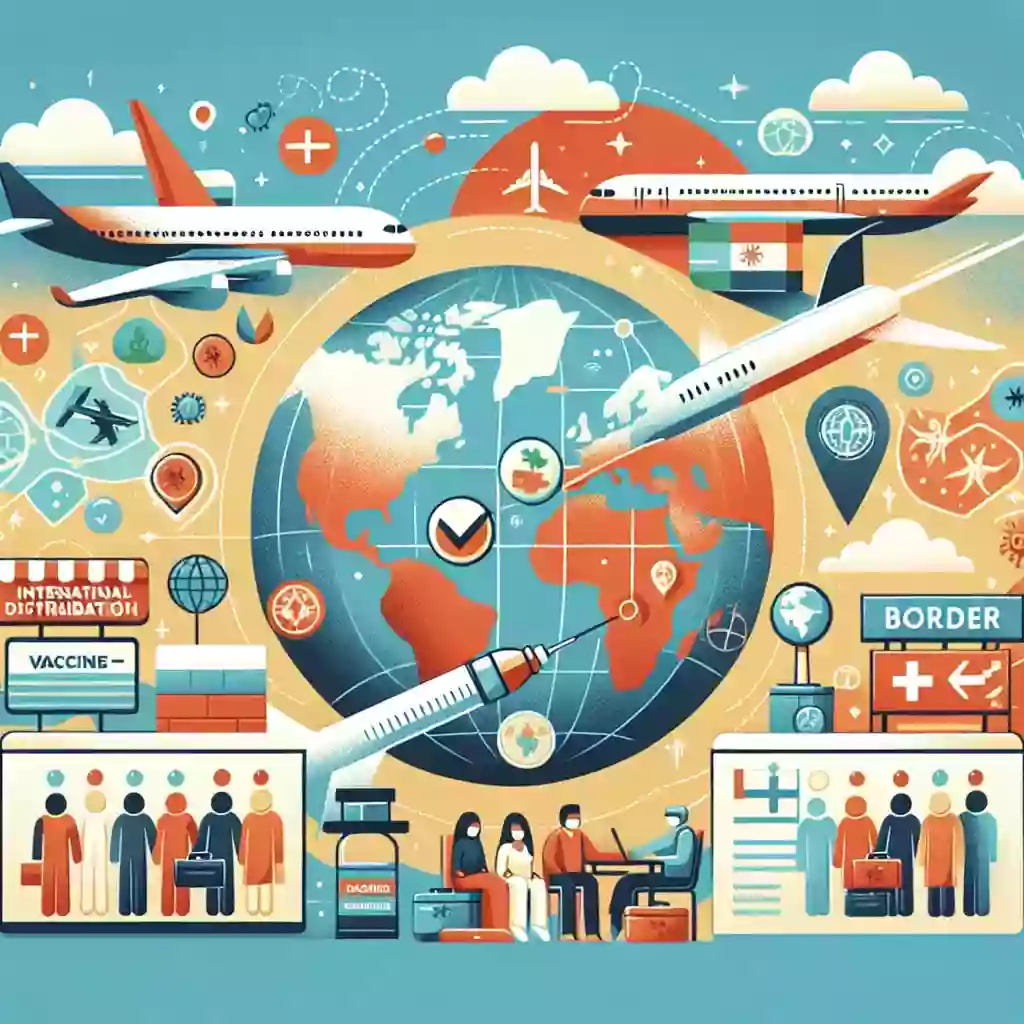How is the vaccination against coronavirus going: statistics and achievements of countries

How does vaccination affect overcoming the pandemic and economic recovery?
How does COVID-19 vaccination affect international air travel and tourism?
Despite the extensive vaccination efforts and strict measures implemented in many countries, the COVID-19 pandemic continues to pose a serious challenge for humanity. Real steps towards overcoming it will involve vaccination and the development of immune protection in a significant portion of the world's population. Many nations, recognizing the urgency of the situation, are actively engaged in the development and deployment of effective vaccines to combat this dangerous virus.
However, it is worth noting that vaccination rates vary from country to country, which raises certain concerns. In this article, we will analyze the results achieved in the field of vaccination and also look at the countries that have already registered their own vaccines.
Vaccination leaders
As of September 14, 2023, the leaders in the number of vaccinated individuals are:
In these countries, the vaccination rate varies from 74.73% to 89.88%. The following are also highlighted:
The situation in the CIS countries
The situation in the CIS countries shows lower indicators.
Estonia: at least one dose of the vaccine has been received by 56.06% of citizens.
Latvia: 47.32%
Russia: 31.64%
Belarus: 17.92%
Ukraine: 13.87%
The role of vaccination in the economy
The role of vaccination in today's reality is hard to overestimate. The speed at which vaccination occurs directly affects economic recovery. It's no surprise that information about successes in this area has a noticeable impact on financial markets. For example, after the announcement that Pfizer would increase vaccine supplies to European Union countries by 100 million doses, the euro's exchange rate against the dollar significantly rose, reaching 1.206.
Recovery after the pandemic
Two key areas of the economy that have been most affected by the pandemic are consumer demand and investments. However, news of mass vaccination has brought noticeable changes in sentiment and has become a source of hope for citizens and entrepreneurs. Many people have started to spend money actively again, returning to their usual level of consumption, which in turn has contributed to significant growth in this sector. Moreover, there is a growing interest in investments — citizens have begun to actively develop their business projects and purchase real estate.
Prospects for opening borders
An important aspect to discuss is the prospects for the imminent opening of borders. Vaccination offers hope for safe travel, which will undoubtedly have a positive impact not only on the global economy but also on the tourism sector.
Introduction
In countries where the COVID-19 vaccination rate is high, there is a greater likelihood of restoring international air travel and simplifying entry conditions for foreign tourists. Such nations have significant opportunities to lift existing restrictions, which positively impacts the development of the tourism sector and brings about beneficial changes to the economy.
Before planning a trip or considering options for purchasing real estate in another country, it is important to check the vaccination rates against coronavirus. This knowledge will help to better understand the potential risks associated with travel, as well as assess its viability.
Vaccines against COVID-19
As of today, more than ten COVID-19 vaccines have been authorized for use, which is a significant achievement in the fight against the pandemic. These vaccines were registered between 2020 and 2021, and they include both domestic developments and foreign ones.
1. Sputnik V
This Russian vaccine was registered on August 11 of the year before last. It has already been approved in more than 60 countries, including Argentina, Serbia, Egypt, Mexico, Montenegro, and Hungary. In the CIS, including Belarus, Armenia, Moldova, Kazakhstan, Kyrgyzstan, Uzbekistan, and Turkmenistan, this vaccine is also actively used.
2.
9 October 2024
9 October 2024
29 January 2025
29 January 2025
29 September 2025


This Russian vaccine product was registered on October 13 of the previous year. Currently, it has only been authorized for use in Russia and Turkmenistan.
3. Comirnaty
Developed jointly by the American company Pfizer and its German partner BioNTech, this vaccine was registered on December 2 of last year. It is used in many countries, including the USA, Brazil, Australia, the UK, the UAE, Japan, as well as the countries of the European Union.
4. Moderna
Made in the USA, this vaccine was registered on December 18 of the previous year and received approval not only in the USA but also in Europe, Canada, the UK, Israel, and more than ten other countries.
5. AstraZeneca
This drug was released in the United Kingdom and officially registered on December 30 of last year. The vaccine has been approved for use in a large number of countries, including European Union states, Brazil, India, and Canada.
6. BBIBP-CorV
The vaccine developed in China and registered on December 31 of last year is currently approved for use only in four countries: China, the UAE, Bahrain, and the Seychelles.
7. Sinopharm
This drug was registered on February 25 of this year and is produced in China. As of today, it has only been approved for use in China and the United Arab Emirates.
8. CoronaVac
This vaccine, developed in China, was registered on February 6 of this year. It is used not only by the Chinese but also by citizens of Brazil, Mexico, Azerbaijan, Ukraine, and other countries.
Conclusion
Each of these vaccines has its own advantages and specific applications, making them important tools in the fight against the pandemic and essential for restoring normal life in society.

Conclusion
Despite the achievable successes in the development and distribution of COVID-19 vaccines, the challenges facing humanity remain significant. In recent months, it has become clear that a high level of vaccination worldwide is necessary for a definitive victory over the virus. Currently, countries that are leading in vaccination rates are demonstrating how quickly the economy and social morale can recover, provided that the population is vaccinated.
The importance of vaccination
It is important to note that vaccination is not only a health issue but also a key aspect of restoring the international economy. Our data shows that countries that actively vaccinate their populations are seeing improvements in consumer spending and investment interest. This indicates that people are beginning to respond to positive changes and are feeling more confident in managing their budgets, planning trips, and investing in real estate.
Prospects for opening borders
It is now important for every country to strive for a higher level of vaccination, which will not only allow borders to reopen and simplify international travel but also enable a return to normal life. The establishment of international corridors and the easing of restrictions will come through mass vaccination, and this will only be possible with the active efforts of all countries on this issue.
Combined efforts
Our fate is in our hands.And only by joining forces can we overcome this pandemic. I believe that our collective efforts and understanding the importance of vaccination will help humanity tackle the current challenges and create a safer and healthier future for all of us.
Comment
Popular Posts
9 October 2024
9982
9 October 2024
1507
29 January 2025
1592
29 September 2025
464
Popular Offers

Subscribe to the newsletter from Hatamatata.com!
Subscribe to the newsletter from Hatamatata.com!
I agree to the processing of personal data and confidentiality rules of Hatamatata












